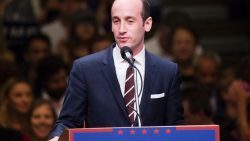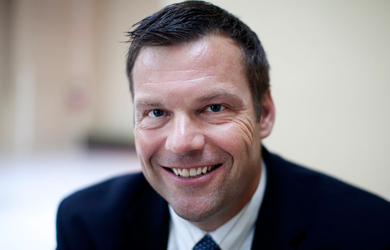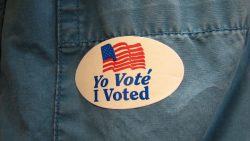President Trump is fulfilling his pledge to investigate his own claims of massive (nonexistent) voter fraud that he said is undermining elections in the U.S. Later today he is expected to announce that he has asked Vice President Pence and Kansas Secretary of State Kris Kobach to lead an “election integrity” commission.
Following the election, Trump was aggrieved by the fact he lost the popular vote by over 3 million votes. Unable to admit such a failure, Trump insisted that he was the real popular vote winner because millions of undocumented immigrants voted illegally for his opponent.
Trump cited no evidence to substantiate his allegation except for the statements of a Republican activist who made a similar claim and who, to date, has refused to provide any evidence substantiating his claims.
Actual experts have determined that there is zero evidence of massive voter fraud, including illegal votes by ineligible voters (such as non-citizens) or in-person voter impersonation fraud. One researcher found only 31 possible instances of in-person voter impersonation fraud—the kind of voter fraud that Republicans cite to justify restrictive voter ID laws—out of over one billion ballots cast in elections from 2000 to 2014. We noted last month that:
Voter fraud, of course, is extremely rare, and in the few cases that do exist, voter ID requirements are unlikely to stop it. Even some conservatives admit that such laws, which make it more difficult for people of color, people with low incomes, and young people—who are all less likely to have photo ID like drivers licenses or passports—to vote, are actually about winning elections for the GOP.
As the editorial board of the Charlotte Observer wrote yesterday, just one case of in-person voter impersonation fraud was found in North Carolina, according to an audit of the 2016 election.
It is much more likely that the Pence-Kobach panel will be used to justify enacting voter suppression measures.
Pence, for his part, led what he described as “a pretty vigorous investigation into voter fraud” when he was governor of Indiana that targeted a voter registration group that primarily worked with black voters. State police raided the group’s office after they found a mere 10 voter registration forms with “fraudulent information” out of thousands of submissions.
The role of Kobach in the commission is even more troubling, as he has doggedly pursued voter suppression measures as Kansas’ secretary of state, where his stringent registration requirements blocked around 18,000 people from registering to vote. He is currently in court over the matter.
Trump aide Kellyanne Conway claimed that Kobach was one of Trump’s sources for his bogus voter fraud claims, and Kobach himself said that Trump “is absolutely correct when he says the number of illegal votes cast exceeds the popular vote margin between him and Hillary Clinton at this point.” Following that declaration, Kobach stumbled in television interviews when attempting to explain how finding a tiny handful of voter fraud cases was proof that millions of people illegally voted.
The Kansas City Star editorial board notes that “of the 1.8 million registered voters in the state,” Kobach was able to find just nine cases of voter fraud, proving “at considerable cost and effort” that “in-person fraud does happen — and that it is very rare indeed.”
Trump, of course, was hardly the first Republican to push the voter fraud hoax. But as president, he may be able to push through a range of measures ostensibly aimed at targeting voter fraud but which in actuality make it more difficult for millions of Americans to exercise their right to vote.







